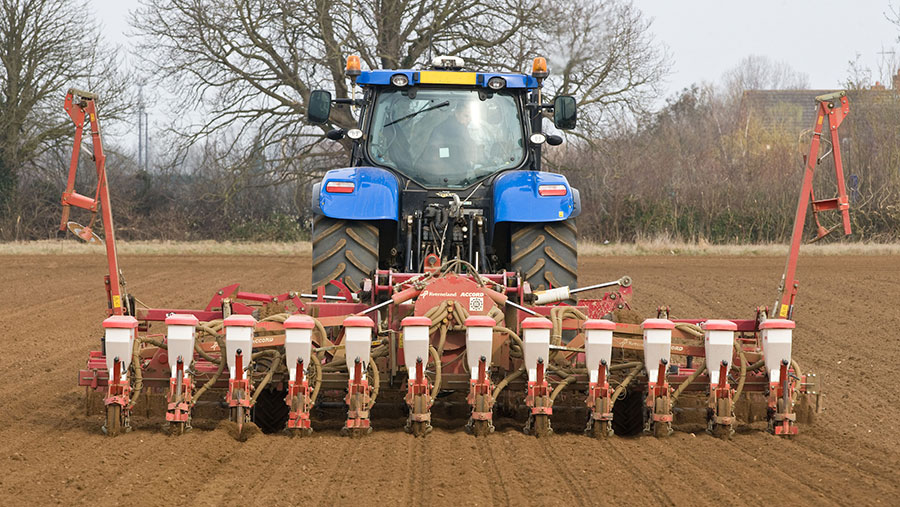Emergency neonicotinoid use on sugar beet approved in England
 © Tim Scrivener
© Tim Scrivener Growers in England can use neonicotinoid seed treatments in sugar beet under strict conditions after Defra confirmed the disease threshold for use has been met.
Rothamsted Research modelling has forecast a national virus yellows infection of 68.9% in the absence of any intervention.
See also: Lawyers challenge Defra on emergency neonics use
This is significantly higher than the required level of 19%, set out by Defra, to trigger the use of Cruiser SB on the 2022 sugar beet crop.
Aphids are forecast to arrive in this year’s crops from 19 April onwards.
The use is subject to strict conditions, including:
- A ban on planting any flowering crop in the same field where the product has been used for 32 months
- The maximum amount of treatment is 6% of the quantity of active ingredient applied on crops before neonicotinoids were prohibited.
NFU Sugar board chairman Michael Sly said growers will be relieved they have the option to use the seed treatment, after virus yellows disease devastated the 2020 beet crop.
“This independent, scientific forecast is a clear indication that British sugar beet growers are facing a significant threat from virus yellows disease this year,” said Mr Sly.
“The limited and controlled emergency authorisation granted by the government for growers to use the neonicotinoid seed treatment was to give them the tools to tackle this disease in this event of severe pest pressure, which we must remember caused crop losses of up to 80% in 2020.”
‘Scandalous’
However, the Wildlife Trusts said the decision was “scandalous”. The campaigners are pushing for a total ban on the use of neonicotinoids.
Craig Bennett, chief executive of the Wildlife Trusts, said: “The government has outlined ambitions to restore nature, promising to protect 30% of land by 2030 and reverse declines of precious wildlife – but at the same time, it is giving a green light to use a highly toxic chemical that could harm pollinating insects and pollute soils and rivers.
“A single teaspoon of this chemical can kill 1.25bn bees, while studies also show a range of sub-lethal effects that affect insects’ ability to forage and reproduce.”
A Defra spokesperson said: “The decision to approve an emergency authorisation was not taken lightly and is based on robust scientific assessment.
“We evaluate the risks very carefully and only grant temporary emergency authorisations for restricted pesticides in special circumstances when strict requirements are met and there are no alternatives.”
